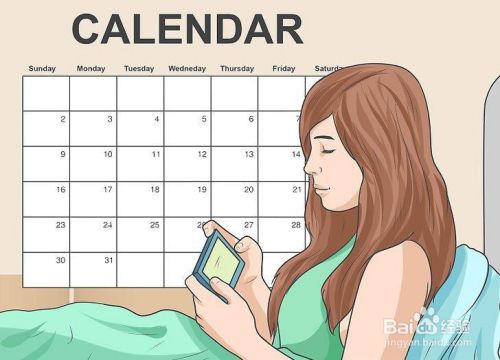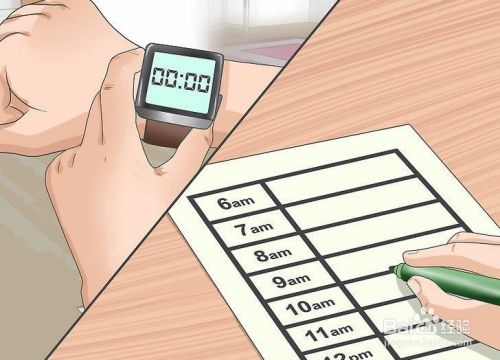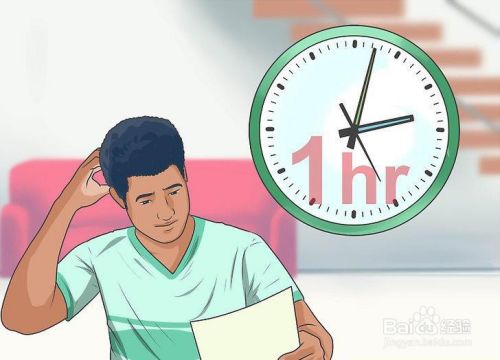How to help dyslexia?
Dyslexia is a learning disorder characterized by difficulties in reading and writing, as well as high-level creativity and overall thinking. Dealing with dyslexia may be challenging, but it is possible. Here we have collected some small methods and hope it is useful.
1. Use the calendar. ☺ One of the best ways for people with dyslexia to organize is to simply use a calendar. Whether it's a large wall calendar, pocket journal, or an app, using the calendar can help you remember important deadlines and dates, and use your time effectively. Don't just mark the expiration date of the date, but also the date you need to start, and any checkpoints in between.

2. Plan your day. ☺ Related to using a calendar, planning your day can help you use your time more efficiently, try to schedule things that require a lot of attention during your more productive time. Remember to include short breaks in your daily plan to recharge and refocus your brain.

3. Make a list. ☺ People with dyslexia are often related to memory. Compiling a checklist will help you be more organized and reduce the things you have to remember. This allows your mind to focus on tasks that require more concentration.

4. Believe in yourself. ☺ You are the first and best source of support for dyslexia. Know that you are not stupid, slow, or stupid. You are talented, creative, and good at thinking. Find out your strengths and use them. Whether it's your sense of humor, optimism, or artistic mind, you should learn from these things when you face difficult tasks or feel frustrated.

5. Use technology. ☺ There are many different assistive devices and technologies specifically designed to make life easier for people with dyslexia. Use an online spell checker when writing. Some people with dyslexia find dictation tools and tools useful when writing. Try audiobooks, text-to-speech programs, and apps, or scanners, to read the text aloud from hardcopy materials.

6. Rely on friends and family.☺ People who care about you will encourage you and help you with difficult tasks. When you face a particularly challenging task, ask your friends and family for help and ask them to read aloud or review your writing. Share your challenges and successes with them.

7. Seek help from professionals.☺ Speech therapists, reading specialists, and other education and speech professionals have specialized skills and training to solve dyslexia. There are also online forums, support groups, and projects to help people overcome dyslexia. Don't be ashamed to use these precious resources.

8. Give yourself enough time.☺ Dyslexia tasks may take longer for people with dyslexia. It is important to ensure that you have enough time to complete your work.

9. Eliminate interference. ☺ Anyone, not just someone with dyslexia, is easily distracted when something more interesting than now happens. Get rid of the things that distract you, and you can pay full attention to tasks that require a lot of brainpower. Put the electronic equipment in a silent state and turn off the music or TV.

10. Interrupt tasks and tasks.☺ Don't solve all the problems at once, but deal with them in smaller chunks. Breaking it allows you to focus more on specific tasks and reduce tasks. For example, if you have a 20-page reading assignment, plan to read five pages at a time with short breaks to digest what you have read.
11. Take rest often.☺ Work between each paragraph and take a break. This can help you absorb the information you just received.

12. Study at night.☺ You may find that you can concentrate better before going to bed. When your mind and body become more stable, the activity around you will decrease. Try to learn the most important materials you must check at night.

13. Don't just do what is necessary. ☺ If you have to write a report on Plato, don't turn it into all Greco-Roman research.

14. Use models when writing.☺ Because people with dyslexia may remember the correct letters and numbers formed by the struggle, an index card for uppercase and lowercase letters, as well as digital handwritten words, is an impossible character model. Flashcards can also review the pronunciation of letters and show the dual purpose of what they look like.

15. Plan and review your writing.☺ Thinking about what you want to write before you start can help you focus on writing. It can also help you manage your time. Reviewing your writing will enable you to catch any spelling, grammar, or other errors. Read your work aloud. It is sometimes easier to find errors in this way. Let others read your work to you so you can hear how your thoughts flow together.
1. Use the calendar. ☺ One of the best ways for people with dyslexia to organize is to simply use a calendar. Whether it's a large wall calendar, pocket journal, or an app, using the calendar can help you remember important deadlines and dates, and use your time effectively. Don't just mark the expiration date of the date, but also the date you need to start, and any checkpoints in between.

2. Plan your day. ☺ Related to using a calendar, planning your day can help you use your time more efficiently, try to schedule things that require a lot of attention during your more productive time. Remember to include short breaks in your daily plan to recharge and refocus your brain.

3. Make a list. ☺ People with dyslexia are often related to memory. Compiling a checklist will help you be more organized and reduce the things you have to remember. This allows your mind to focus on tasks that require more concentration.

4. Believe in yourself. ☺ You are the first and best source of support for dyslexia. Know that you are not stupid, slow, or stupid. You are talented, creative, and good at thinking. Find out your strengths and use them. Whether it's your sense of humor, optimism, or artistic mind, you should learn from these things when you face difficult tasks or feel frustrated.

5. Use technology. ☺ There are many different assistive devices and technologies specifically designed to make life easier for people with dyslexia. Use an online spell checker when writing. Some people with dyslexia find dictation tools and tools useful when writing. Try audiobooks, text-to-speech programs, and apps, or scanners, to read the text aloud from hardcopy materials.

6. Rely on friends and family.☺ People who care about you will encourage you and help you with difficult tasks. When you face a particularly challenging task, ask your friends and family for help and ask them to read aloud or review your writing. Share your challenges and successes with them.

7. Seek help from professionals.☺ Speech therapists, reading specialists, and other education and speech professionals have specialized skills and training to solve dyslexia. There are also online forums, support groups, and projects to help people overcome dyslexia. Don't be ashamed to use these precious resources.

8. Give yourself enough time.☺ Dyslexia tasks may take longer for people with dyslexia. It is important to ensure that you have enough time to complete your work.

9. Eliminate interference. ☺ Anyone, not just someone with dyslexia, is easily distracted when something more interesting than now happens. Get rid of the things that distract you, and you can pay full attention to tasks that require a lot of brainpower. Put the electronic equipment in a silent state and turn off the music or TV.

10. Interrupt tasks and tasks.☺ Don't solve all the problems at once, but deal with them in smaller chunks. Breaking it allows you to focus more on specific tasks and reduce tasks. For example, if you have a 20-page reading assignment, plan to read five pages at a time with short breaks to digest what you have read.

11. Take rest often.☺ Work between each paragraph and take a break. This can help you absorb the information you just received.

12. Study at night.☺ You may find that you can concentrate better before going to bed. When your mind and body become more stable, the activity around you will decrease. Try to learn the most important materials you must check at night.

13. Don't just do what is necessary. ☺ If you have to write a report on Plato, don't turn it into all Greco-Roman research.

14. Use models when writing.☺ Because people with dyslexia may remember the correct letters and numbers formed by the struggle, an index card for uppercase and lowercase letters, as well as digital handwritten words, is an impossible character model. Flashcards can also review the pronunciation of letters and show the dual purpose of what they look like.

15. Plan and review your writing.☺ Thinking about what you want to write before you start can help you focus on writing. It can also help you manage your time. Reviewing your writing will enable you to catch any spelling, grammar, or other errors. Read your work aloud. It is sometimes easier to find errors in this way. Let others read your work to you so you can hear how your thoughts flow together.




Comments
Post a Comment